Frederica Freyberg:
I’m Frederica Freyberg. Tonight on “Here & Now,” Congressman Mike Gallagher is here to consider a Democrat-run House of Representatives. Attorney General-Elect Josh Kaul on the work ahead at the Department of Justice. And an inside look at the changes afoot at UW-Stevens Point from the school’s provost. It’s “Here & Now” for November 16.
Announcer:
Funding for “Here & Now” is provided, in part, by Friends of Wisconsin Public Television.
Frederica Freyberg:
Every two years, candidates will inveigh against the status quo in the swamp and promptly then get swallowed by it. These words written by newly re-elected Republican Congressman Mike Gallagher of Green Bay. This week he penned a long article for the “The Atlantic” magazine bemoaning the utter dysfunction of Congress that he came to understand in his first term starting in 2016. He unravels the mess in his article titled “How to Salvage Congress.” Congressman Mike Gallagher joins us now from Washington. Thanks very much for being here.
Mike Gallagher:
Thanks for having me.
Frederica Freyberg:
Just ahead of getting into your dismay over how Congress works, what’s your reaction to the House flipping its majority?
Mike Gallagher:
Well, I worry that we’re going to see more of what we’ve seen in recent decades, which is to say gridlock. If the next few years just becomes an exercise in preparing for what will be an acrimonious presidential race, then we’re going to waste two years. And ultimately gridlock is bad for the economy, which means it’s bad for Wisconsin families. That 11% approval rating that Congress is currently rocking will get lower and lower. And that distrust of the institution is bad for the country.
Frederica Freyberg:
You say that when you were elected two years ago, you found the problems weren’t as bad as you expected, they were worse. Why does this dramatic assessment come now?
Mike Gallagher:
Well, listen, it’s taken me a while to sort of observe how things work in Congress. I spent the last year and a half not only trying to advance certain legislative priorities, but really taking some time to step back and reflect on the institution. I hadn’t ever run for political office before so I consider myself new to this. But I remember sitting in orientation with my Democratic colleagues two years ago and I was struck by the fact that all of us were speaking the same language. We had different views of the future of health care, but we were elected to change the status quo in Washington D.C. So I found myself wondering why is it that every two years, people sort of campaign against Congress and yet, nothing gets changed. So I did a deep dive into past efforts at Congressional reform, which really starts with Wisconsin history in the 40s under Bob La Follette, Jr. led a reorganization effort. And that informed my assessment of how the institution isn’t working right now. So it took me a while sort of to get my thoughts on paper.
Frederica Freyberg:
In fact, you write that Congress is dysfunctional and not doing the work of making laws and providing oversight because leadership runs the whole show. Congress is not equipped to get anything done. You say it has instead become a theater used by both parties to stoke the outrage of their base. What’s an example of that?
Mike Gallagher:
Well, listen. All you need to do as I allude to in the piece is turn on C-Span on any given day and you’ll see people giving a speech to an empty House chamber. I think perhaps the most distrusting example is the way in which Congress has outsourced its power of the purse to the executive branch. Most of what we fight about in terms of the budget is actually a very small portion of taxpayer money. 70% of taxpayer money just goes out the door every day for mandatory programs. When we actually do get around to passing laws, these are actually vague pieces of laws that give the executive branch more and more authority. So a good example would be to read sort of the Politico’s ongoing piece where every week they do “Five things Trump did When You Weren’t Looking.” And I love doing this because if you’re conservative, you read it, and you sort of like the policy outcomes. But he’s doing everything through executive order. So if you’re a conservative, you shouldn’t like that. And so if our politics devolves into a presidentially-focused system, where every four years, we’re waiting the coming of some messianic figure to solve all our problems, well, that’s a sign that Congress isn’t working ’cause if you read the Constitution, if you read the Federalist Papers, the preponderance of power is invested in the legislature for good reason. Because it is most– or should in theory, be most accountable to the people, who are ultimately in charge.
Frederica Freyberg:
You’re talking about how leadership really runs the whole show. Were you okay with this while Paul Ryan was House Speaker?
Mike Gallagher:
Well I think the fact that Paul Ryan was able to get as much done as he was is the exception that proves the rule. Paul led through the sheer force of his good will that he had built up through 20 years of being a high-integrity person and a thought leader. Paul Ryan is somebody who came to Congress who actually came here to do real, deep, intellectual, policy-focused work. But I think it’s also fair to say that every Speaker of the House in recent memory has struggled to impose regular order. You can look back at the speeches that John Boehner gave prior to becoming speaker. He talked about a lot of the things Im talking about, which is just how the process has broken down. You need only look at the few years of just kind of how the budget process has broken down. Also I quite candidly admit that the Senate is a huge part of this problem. In the House, we’ve actually passed over 600 pieces of legislation that remain mired in the Senate. I don’t presume to have a fix for the Senate. There’s a lot of ambitious people in the Senate who seem uninterested in doing real legislative work. That’s a big part of it. I didn’t have enough time or space to tackle it in my piece and I readily admit that.
Frederica Freyberg:
You do have solutions, starting with having Congress work harder. What would that look like?
Mike Gallagher:
So I think most people would be surprised at how the schedule in D.C. actually works. You parachute in here on a Monday or a Tuesday night. You have 48 to 72 hours of very frantic activity. A lot of that activity is actually not legislative work. It’s on the political side. It’s people raising money for re-election. Then you fly back home to your district. This practice sort of started in the ’90s when people didn’t want to move their families to D.C. because they didn’t want to get primaried in an election. So what is lost in this is the time necessary to one, develop real relationships within your party, across the aisle, get to know people so you can arrive at a common understanding and figure out where you can work together. And, two, just time to do your basic job of showing up to your committee hearings. How about this? Reading the actual bills before that you vote on, before you vote on them. Most people aren’t doing that right now. The schedule gets more and more compressed. If you add on to that the demands of fund-raising and more and more money flooding into our elections every two years. What you get is a legislature that’s kind of faking it right now and just waiting so they can get re-elected or using their position to run for higher office.
Frederica Freyberg:
Youd also streamline committees and have committee members choose their chairs. Why?
Mike Gallagher:
I think if you look at the evolution of the House, since the ’70s, it started with the Democrats and then it accelerated with the Republicans in the ’90s. The real change has been power has flowed from committee chairs and members and has been tightly concentrated at the top. I actually think you get more regular order, better debate by devolving power back to the committees. The reason you want people — you want most of the action to happen in the committee work is that that’s where you can really develop the expertise necessary to understand what the heck the federal government is doing and also understand are we spending money on things that are working? Are we as a government a learning organization? Or are we simply wasting money and not actually solving problems we want to solve. So electing committee chairs by committee members is one way to get at that devolution of power. I should note however that I proposed this amendment yesterday in our caucus and it did not pass. It did spark a very robust debate. There were some useful perhaps counter-compromise measures that were suggested that Ill be taking a look at. The streamlining committees is a bigger thing. The biggest legislative reform that was successful as I mentioned before was in the ’40s. It was this exercise in streamlining committee jurisdiction. Right now we have overlapping jurisdiction. We have a fundamental division between authorizers, who tell certain federal government agencies what they’re allowed to do and then appropriators who actually give them the money. And really a lot of authorizing committees are left without any power and influence. Everything gets stuffed into a last-second appropriations bill, an omnibus bill, a massive spending bill that people just don’t have time to read and analyze and understand if it’s worth voting on or not. So I think a simpler structure where everyone had clear lines, lanes of responsibility would make a lot of sense and help the institution out.
Frederica Freyberg:
Very briefly, with about 30 seconds left, how will it be for you working in the minority in the House?
Mike Gallagher:
Ive been thinking about that a lot. I’ve obviously never experienced it. But quite honestly, I don’t intend to approach the job any different. I know most Republicans right now are thinking about, okay, how do we take back the majority and raise a lot of money. I understand that’s politics. But I think being in Congress for two years, whether you’re in the majority or minority, is still an awesome responsibility. So I wake up every morning energized just to do what’s right for northeast Wisconsin. I’m going to continue doing that even if Im in the minority and we’ll see where it goes. I don’t want to waste the next two years just throwing bombs on cable news.
Frederica Freyberg:
U.S. Representative Mike Gallagher, thanks very much.
Mike Gallagher:
Thank you.
Frederica Freyberg:
And this program note. We will hear from Democratic U.S. Representative Mark Pocan next week on “Here & Now.” Late this week, Governor Scott Walker made his first public comments since his election loss. Walker says he does not know what’s next for him.
Scott Walker:
Weve had a bunch of different offers from people out there, suggestions of what we should do. Tonette and I are going to spend a lot of time talking about that. Most importantly, praying about that and figuring out what we think God’s calling us to do for the next few years.
Frederica Freyberg:
Now to state Capitol news. Breaking news in the race for Wisconsin Attorney General. A final vote count posted on the State Elections Commission site has Attorney General Brad Schimel within the margin for a recount. The number shows Josh Kaul up by 17,190 votes, under the 1% threshold for a candidate-paid recount. Attorney General Brad Schimel announced this afternoon he will take the weekend to decide whether to seek that recount. On election night, Schimel said it appeared Kaul had won but he stopped short of conceding. For his part on election night, Kaul said the results were close but clear. I spoke to Attorney General-Elect Kaul this afternoon before the final tally was released. I started by congratulating him. Thanks for being here.
Josh Kaul:
Thanks for having me.
Frederica Freyberg:
Congratulations.
Josh Kaul:
Thanks very much.
Frederica Freyberg:
Right out of the chutes, not specific really to your election, but what are your comments on the moves on the part of the Republican legislature with the apparent approval of Scott Walker to move the date of the 2020 presidential primary so that it’s not at the same time as the state Supreme Court election, ostensibly to protect the conservative justice?
Josh Kaul:
Im hopeful that the legislature is not going to be taking a lot of action here before Tony Evers takes office. The date of this election has been set for a long time. The legislature could have taken action earlier if this was an important issue. It didn’t do so and I don’t think now, after the voters have spoken, is the time for that sort of action to be taken. It would also be costly to the state. I don’t think there’s any reason for an additional election to be held.
Frederica Freyberg:
Following the transition, what is your first order of business as attorney general?
Josh Kaul:
There are going to be several, but Governor-Elect Evers has made clear that he wants to withdraw the state of Wisconsin from the lawsuit that’s seeking to invalidate the Affordable Care Act and I look forward to working with him to withdraw the state from that lawsuit. That suit, if it’s successful will eliminate protections for people with a pre-existing condition. It would eliminate the guarantee that young adults can remain on their parents’ coverage until they turn 26. So I don’t think that that suit is in the interest of Wisconsinites and I’m glad we’re going to be able to withdraw from it. But we also need to take action to request the funds we need to address increased delays at the state crime labs. I’m looking forward to also working with legislature to develop legislation that can help ensure that there’s never another backlog of untested rape kits in Wisconsin and we’ve got to start responding to the opioid epidemic like the crisis it is.
Frederica Freyberg:
And I want to ask you about each of those things but in terms of the ACA lawsuit, withdrawing from that suit, which would try to repeal the law, would you sign on to a suit to protect the law?
Josh Kaul:
So in this particular suit, the state of Wisconsin has been on one side of the case and I don’t think it makes sense for the state of Wisconsin to switch sides mid case. So I think there what we should do is withdraw. But I do think that we should pass protections here in Wisconsin for people with a pre-existing condition so that those protections are not just in federal law, but we also have them here in state law.
Frederica Freyberg:
What would you do with the Solicitor General’s Office currently in the Justice Department?
Josh Kaul:
So I think having a Solicitor General makes sense. That’s a signifier that that person is the chief appellate lawyer at the Wisconsin Department of Justice. But I think we could move some resources from that office into other areas. I think potentially criminal litigation to have more attorneys who are focused on issues like the opioid epidemic. I also think having that unit more streamlined with the appellate units at the Department of Justice makes sense. So one of the things Ill be looking at as we move forward is what type of reorganization to look at in that area.
Frederica Freyberg:
Some 45 former attorneys at the Department of Justice endorsed you. Do you expect to be greeted by a morale problem?
Josh Kaul:
I think that there is room for improvement in morale at the Department of Justice. And one of the things I think is going to be important is making sure that there’s a clear vision in terms of what the AG is hoping to accomplish. And I think there are some areas where Ive been spelling that out. I spelled that out throughout the campaign, which is increasing environmental enforcement, for example, increasing consumer protection enforcement. Then I think we need to empower the professionals at the Department of Justice to do their job of working on behalf of the people of Wisconsin.
Frederica Freyberg:
What do you say to victims of sexual assault who might have been waiting to see their cases prosecuted?
Josh Kaul:
I think we need to do a better job than we have so far. The backlog of untested rape kits in Wisconsin I think, the testing process was delayed too long and there shouldn’t have been a backlog that built up in the first place. One of the things Im going to do as AG is ensure that where there are DNA matches from the testing of the kits in the backlog, that those matches are fully and thoroughly investigated. But as I mentioned, we also need to pass legislation that’s going to strengthen our laws and I think DOJ needs to play — needs to keep playing a role in making sure that law enforcement agencies have training about when kits should be submitted and that there’s clear guidance provided to agencies around the state.
Frederica Freyberg:
What is it like to have been elected to this position that your late mother, Peg Lautenschlager, held?
Josh Kaul:
It means a lot. You know, she was able to spend a lot of her career in public service and to make a difference in her community and in the state and I know that that meant the world to her. It also meant a lot to her that I also spent part of my career as a federal prosecutor. I’m sure she’s looking down and is excited I get to spend the next four years as Wisconsin Attorney General.
Frederica Freyberg:
Josh Kaul, thanks very much.
Josh Kaul:
Thank you.
Frederica Freyberg:
Now to higher education and a UW System school that has had to tighten its belt by redesigning its curriculum. Last spring in the face of falling enrollment and an $8 million budget deficit, UW-Stevens Point began working on an academic realignment. This week university officials announced the “Point Forward” plan to address the challenge. The plan tightens the belt even as it nudges liberal arts students toward what the campus calls career-minded majors. The bottom line? The elimination of six degree programs in the humanities: French, German, history, geology, geography and two degree programs within the art department. Additional cost saving will come from cutting six to ten faculty positions. Earlier I spoke with UW-Stevens Point Vice-Chancellor and Provost Greg Summers. Thanks very much for joining us.
Greg Summers:
Happy to be here.
Frederica Freyberg:
Describe, please, the cuts that UW-Stevens Point is making.
Greg Summers:
Well, we’ve talked before Frederica about the fact that we have a budget deficit and certainly the proposal that we circulated to campus this week was meant to address that at least in part. But it’s also the case that we’re thinking about a lot more than just budget. What this is really about is trying to respond to the changing education need that we’re seeing in Wisconsin. We know that students are really cost-sensitive these days and so they’re focused, sort of laser focused on the career pathways that their degree choice can open up. So our restructuring that we’re proposing: reorganizing our academic colleges and focusing our curriculum is really meant to highlight those career paths. We know that employers are no longer content to choose between graduates that have a liberal education or graduates that have professional training. They want both. They need both. So we’re working hard to integrate those things. We’re redesigning our core curriculum and emphasizing critical thinking. And lastly, we know that the number of high school graduates in Wisconsin is declining, so we’re working hard to address adult student populations in the region.
Frederica Freyberg:
Will the cuts then balance the budget?
Greg Summers:
In the end, that’s where we’re going. We’re certainly working toward a balanced budget plan. We know we have a strategic — structural deficit and we’re working on a three-year plan to balance that.
Frederica Freyberg:
Is this really kind of a wholesale realignment of your university campus offerings?
Greg Summers:
I think before we’re done in the next five years, you’re going to see a pretty wholesale rethinking of our curriculum and our approach to region, absolutely.
Frederica Freyberg:
It almost sounds like a mix, a hybrid between usual four-year university offerings and technical colleges.
Greg Summers:
Well, you know, we’ve gotten a lot of criticism for becoming a technical college in recent months. That’s just not the case. Technical colleges do a great job of graduating students who are looking for a vocation, looking for a job. What we’re doing is preparing students for careers. What careers means is — it’s everything that’s inherent in a liberal education. It means life-long learning. It means the ability to innovate, to adapt and to change as the needs of an employer or the needs of a career, the needs of their communities change. So we see this as absolutely part and parcel with the mission of the university and I mean that university with a capital u.
Frederica Freyberg:
What do you say to concerns that cutting particular majors in foreign language, history and art are an assault on the humanities?
Greg Summers:
I don’t see it that way. I’m an historian myself. I think we have to think long and hard about the purpose of the humanities in the system of higher education. What I would ask students who are interested in these programs is what outcome they want to achieve. In 99.9% of the cases, we’re going to be able to help students reach their goals to obtain the outcomes they’re hoping to achieve through a higher education.
Frederica Freyberg:
Youre also adding some centers. What are those and why are they being added?
Greg Summers:
Were adding two centers to our university college. One is what we’re going to call the Institute for the Wisconsin Idea. And that’s really going to be the home for liberal arts education at Stevens Point. One of the things that I think is true about universities in general is we tend to make the general education curricula that we offer our students, which are one-third of the credits in a 120 credit degree, we tend to make those credits an afterthought. The majors tend to come first. The academic programs come first, which is understandable. But gen ed, the liberal arts core curriculum tends to be a second or third priority of the campus. We’re going to reverse that. We’re going to make the liberal arts core curriculum the first priority for our students because, as I said, employers want graduates that have that liberal arts background and professional skills. And we’re going to make sure that we integrate those. The other center that you alluded to is called the Center for Critical Thinking. Universities will say all the time that we teach critical thinking and we certainly do. But there is no consistent definition in higher education from one discipline, one department to another about what critical thinking means. We’ve had a faculty member leading a curricular reform project here on campus for two years that’s involved more than 70 faculty from cross disciplines learning how to teach critical thinking consistently and more important, how to make sure our students are learning those skills. We’re going to teach critical thinking better than any university, not just in the state but in the country before we’re done.
Frederica Freyberg:
Is UW-Stevens Point expected to be a model for other campuses across the state?
Greg Summers:
Were thinking about our students and our region. If what we’re doing becomes a model for the rest of higher ed, that’s okay with us. I hope it does.
Frederica Freyberg:
And yet how difficult is it to have to eliminate some of these majors and also the staff layoffs?
Greg Summers:
Oh, I think of course it’s difficult. I am an historian, as I mentioned, and to propose the elimination of a history major is difficult. For me personally, as well as for the campus, it’s always difficult to go through a spending reduction exercise. But we’re also excited about the direction we can take. As an historian, I can tell you I am as committed as anybody to making the liberal arts the central thing we do well and particularly to make sure it’s integrated with our professional programs so that it serves our students well and the region well.
Frederica Freyberg:
Is this the beginning of cuts or the end?
Greg Summers:
Weve been talking about our financial issues for a period of years, so I hope we’re coming to the end of this process. But it’s certainly going to — the process will continue in the coming weeks and months ahead for us.
Frederica Freyberg:
All right. Provost Greg Summers, thanks very much for joining us.
Greg Summers:
Thanks for having me, Frederica.
Frederica Freyberg:
The gun-deer season is upon us in Wisconsin. Historically the deer hunt can bring in billions of dollars in retail sales annually. The state Department of Natural Resources continues efforts to limit the spread of a disease in the state’s herd, though, and asks hunters to do their part. Marisa Wojcik has more on this.
Marisa Wojcik:
This Saturday, November 17th, Wisconsin’s nine-day gun deer hunting season kicks off and hunters are being asked to look out and test for chronic wasting disease, or CWD. CWD is a fatal neurological disease affecting fear, elk and moose and causes brain degeneration in the animal it infect. Transmission can be both direct and indirect contact. The Wisconsin Department of Natural Resources is reporting 55 of the state’s 72 counties as areas affected by CWD. The Wisconsin DNR has tested more than 3,000 deer throughout the state since April and a total of 124 tested positive for CWD. All but two of those came from the southern part of the state. The prevalence of the disease has been increasing in Wisconsin since 2002. In an attempt to curb the spread of the disease, baiting and feeding restrictions are in place for 43 counties. Another way to stop the spread is by regulating how carcasses are transported. The DNRs website says that carcass movement restrictions are in place to assist in limiting the spread of the disease and that hunters are allowed to take whole or parts of carcasses from a CWD-affected area into any part of Wisconsin, provided if taken to a licensed taxidermist or meat processor within 72 hours of registration. Hunters are required to take everything but the animals’ entrails with them when they leave the field. The department considers this a serious issue and is encouraging hunters to properly dispose of carcasses originating from a CWD-affected county and to get their deer tested for CWD by taking them to one of the many sampling stations located throughout the state. Last year more than 227,000 deer were harvested during the gun hunting season, a number that has remained relatively steady since 2009. For these and other fast facts, visit wpt.org.
Frederica Freyberg:
That was Marisa Wojcik reporting. Now to a controversy this week in Baraboo, a small town getting international attention from a single photograph. The photo shows high school boys giving what appears to be a Nazi salute. It was taken in Baraboo last spring. The parent who took the photo says it’s been misconstrued. The boys were asked to wave goodbye before prom. But Baraboo Superintendent Lori Mueller sent a letter to parents midweek saying, “Details of a formal investigation will be forthcoming but in the meantime, the district is in the planning stages with civic, community, and faith leaders to host an upcoming community program.” Mueller also says, “Regardless of the details of the photo or the intentions in the hearts of those involved, the truth is this is an image that has rightly been described as hateful, frightening and disappointing. We are so very sorry that the actions of some of our students so understandably and deeply hurt people around the world. We have heard from families whose loved ones were lost in death camps, who fought in the war against such evil and who rightly cannot imagine that an image like this exists in our modern day.” The superintendent says the program is designed as an opportunity to come together, to listen, learn and heal. Before we leave you this evening, we want to say thank you to our visitors today from Brodhead High School, future journalists who work with the PBS student reporting lab. We want you to keep up the good work. Next week, Governor-Elect Tony Evers will be here. I’m Frederica Freyberg. Have a great weekend.
Announcer:
Funding for “Here & Now” is provided, in part, by Friends of Wisconsin Public Television.
For more information on “Here & Nows” 2018 election coverage, go to WisconsinVote.org.
Search Episodes
Related Stories from PBS Wisconsin's Blog

Donate to sign up. Activate and sign in to Passport. It's that easy to help PBS Wisconsin serve your community through media that educates, inspires, and entertains.
Make your membership gift today
Only for new users: Activate Passport using your code or email address
Already a member?
Look up my account
Need some help? Go to FAQ or visit PBS Passport Help
Need help accessing PBS Wisconsin anywhere?

Online Access | Platform & Device Access | Cable or Satellite Access | Over-The-Air Access
Visit Access Guide
Need help accessing PBS Wisconsin anywhere?

Visit Our
Live TV Access Guide
Online AccessPlatform & Device Access
Cable or Satellite Access
Over-The-Air Access
Visit Access Guide
 Passport
Passport






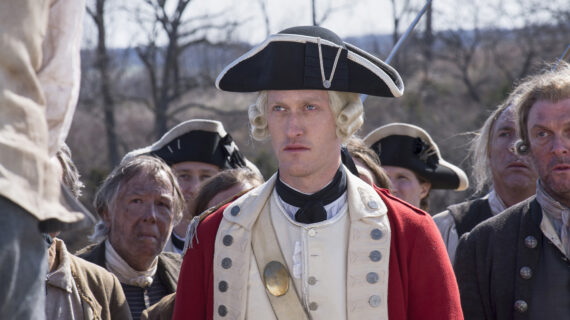
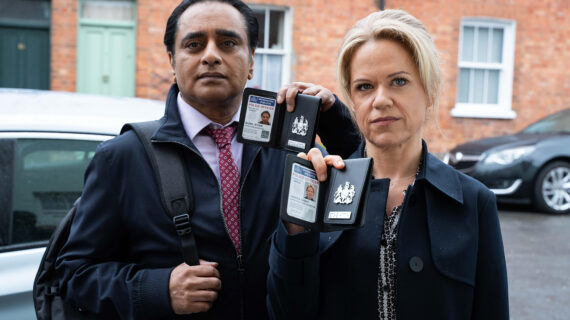
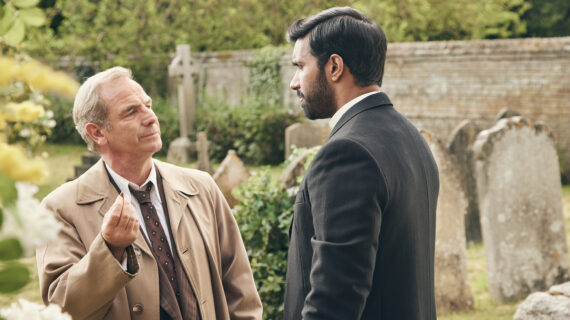
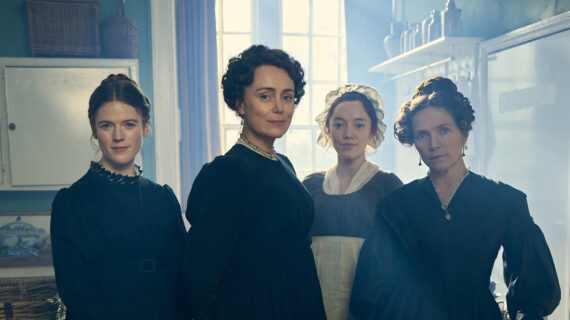

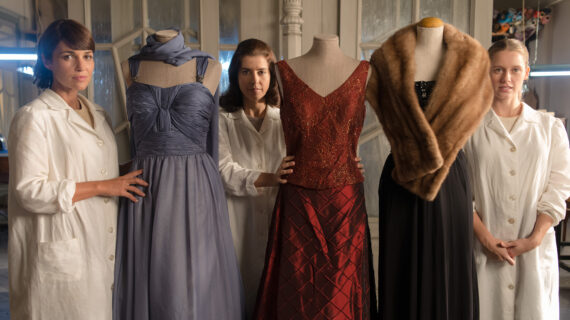
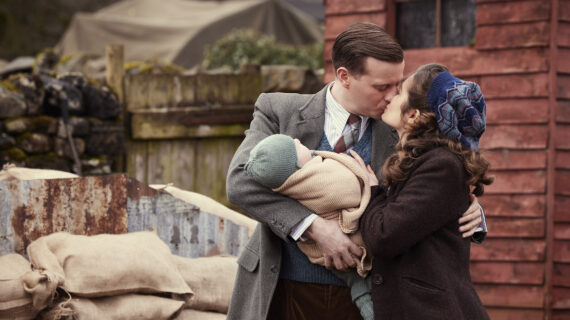

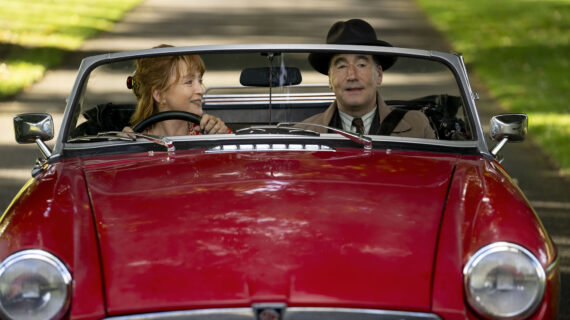
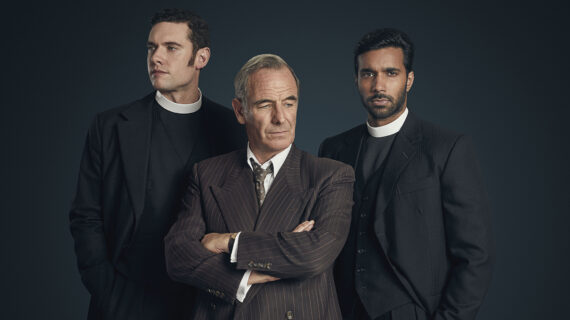
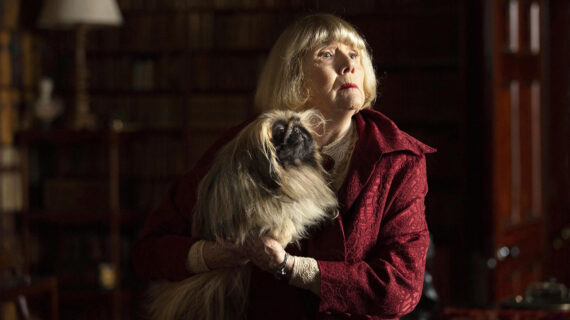

Follow Us